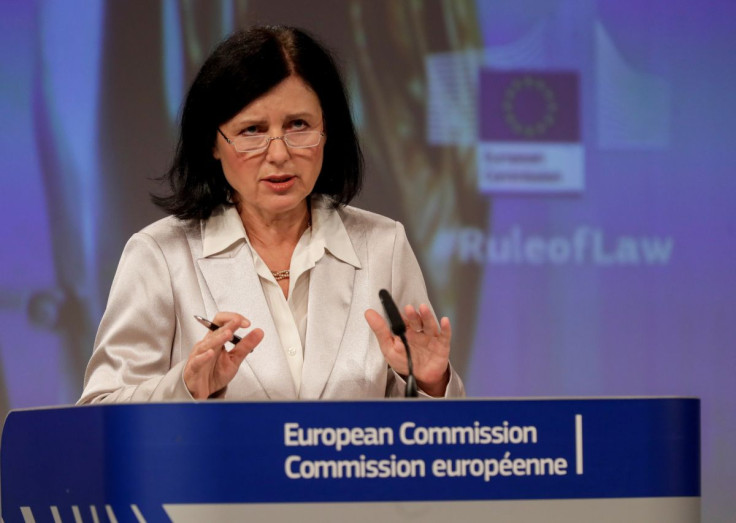EU Tells Hungary, Poland To Step Up Their Democracy Game

The European Union told Hungary and Poland on Wednesday to improve judicial and media independence, as well as anti-graft safeguards, saying conditions to unlock billions in aid for the two have not been met and serious concerns persist.
The assessment came in the EU executive's new rule of law report, which includes tips for democratic improvements in all of the bloc's 27 member states, from better financial disclosure by officials to digitalisation of public administration.
But eyes are on the two former communist countries where eurosceptic governments have been fighting increasingly bitter battles with the EU over migration, human rights, environmental affairs and democratic values.
"Russia's war in Ukraine is another reminder of the importance of our work to uphold and promote rule of law in the EU and beyond," European Commissioner for Values and Transparency Vera Jourova said in presenting the report.
"We can only remain credible if our own house is in order."
The Brussels-based Commission is withholding Budapest's access to 15.5 billion euros of stimulus funds meant to help lift economies from the COVID dip, and to another 36 billion euros envisaged to Poland, the largest country in the EU's east.
The Commission has already approved payouts for 25 member countries. Poland is in that group but it has not received any money yet as the Commission vows to refrain from making the actual bank transfer before the Polish judiciary is fixed.
On Wednesday, it said that "serious concerns persist related to the independence of the Polish judiciary".
It prescribed separation of the roles of justice minister and prosecutor general, improving civil society's access to policy-making and ensuring fair process in deciding on media broadcasting licences.
"This is not about the rule of law," said Polish Justice Minister Zbigniew Ziobro, who is also the country's prosecutor general and the man behind the overhaul of the Polish courts that the EU says has left them open to political meddling.
"It is about power, it is about overthrowing a government that has a democratic mandate in Poland," Ziobro told a news conference in reacting to the Commission's recommendations.
Budapest has said repeatedly over the weeks that it was ready to seal a deal with the Commission but the executive has reported insufficient progress from Hungary.
STALEMATE
The chief of staff of Hungarian Prime Minister Viktor Orban, Sergely Gulyas said on Wednesday that Budapest met all the technical and legal requirements to get the funds, and accused the Commission of politicising the issue. Justice Minister Judit Varga called the report "the usual crossfire".
The EU report said concerns about judicial independence in Hungary "remain unaddressed".
It recommended that Budapest strengthens the role of its National Judicial Council, enhances the independence of its media regulatory authority and adopts "comprehensive reforms on lobbying".
The withholding of EU funds comes at a sensitive time for Orban as Hungary's forint currency hit record lows against the euro amid double-digit inflation and surging energy costs.
"This leaves Orban with a tricky economic problem to solve, one that would be easier to deal with if he had access to EU funding," Eurointelligence consultancy said on Wednesday.
In the meantime, Orban has complicated the EU's efforts to impose sanctions on Russia for waging a war on Ukraine, or agree a minimum global corporate tax.
"Hungary and the European Commission... are approaching the mutually damaging stalemate," Eurointelligence added.
© Copyright Thomson Reuters 2024. All rights reserved.







